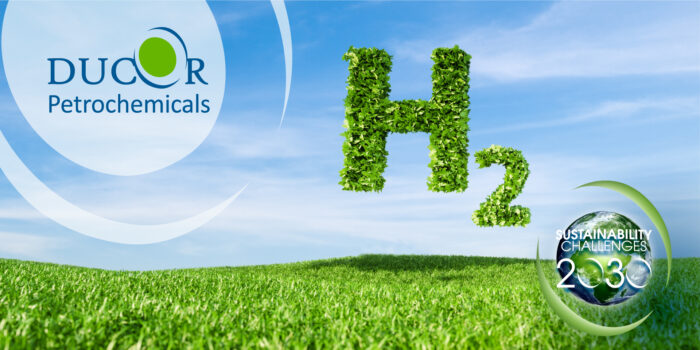The Bazan Group Launches their Low-Carbon Economy

- Bazan is to become the leading supplier of renewable energy for transport as well as increasing their portfolio of advanced and sustainable polymers
- Bazan is investing a total of $1.5 billion dollars in capital investments by 2030
- Objectives by 2030: expansion of the green hydrogen production capability and nationwide deployment of hydrogen fueling stations, sustainable & advanced polymers as 30% of total production
The Bazan Group, the largest petrochemical conglomerate in Israel, presented its new strategy at a conference in Tel Aviv, attended by dozens of investors, analysts and representatives of the banks and the largest financial institutions in the economy.
Ovadia Eli, Chairman of Bazan: “The Bazan Group will continue to be an essential partner of industry for the State of Israel, in all aspects: security, economic and environmental. The new strategic plan will turn Haifa Bay into a leading center of development and promotion of clean fuels, and in parallel Bazan will continue to ensure operational continuity in the economy.”
Moshe Kaplinsky, CEO of Bazan Group: “In the years to come, Bazan intends to evolve from a company producing refined petroleum products and polymers to a leading supplier of renewable energy for transport and of advanced polymers.”
Bazan presented a clear vision for its future. The Group will make the bridge to the future of the transport energy market in Israel and will lead a transformation towards sustainability and innovation, in its fuels and polymers activities.
Today, we are putting forward a plan with clear objectives. We will lead the green hydrogen and alternative fuels market for transport in Israel and in the Mediterranean Basin, we will lead the advanced (recycled and sustainable) polymer and sustainable market and shall leverage our activity in Western Europe, all of which will be carried out in parallel to our continued activity in leading the fuel sector focused on the needs of the economy.”
The Bazan CEO, Moshe Kaplinsky, concluded by welcoming the incoming CEO, Malachi Alper, and wished him every success in his new position.
According to the strategic plan, Bazan is to invest $1.5 billion dollars in capital investments by 2030: at least $400 million will be invested in the new growth engines and the remainder will be invested in the continued improvement and adaptation of the existing assets, integration of advanced technologies for production and carbon footprint reduction.
Creating a low-carbon economy: a three-pillar strategy
First pillar:
Green hydrogen and alternative fuels
Bazan will lead the green hydrogen market for transport and industry together with both local partners and global giants. Bazan will lead the field of innovation and entrepreneurship in the alternative fuels ecosystem in the local market and will maintain an international presence in the Mediterranean Basin region.
During the coming decade, Bazan will act to adapt its existing assets and build the infrastructure for the future of the green hydrogen market, at the same time as creating strategic alliances with leading companies in the transport sector, including car manufacturers and heavy vehicle fleets. Bazan will expand its investments in the future growth engines, which will include examination of investments in innovative hydrogen and alternative fuels-related technologies, including via the Israeli company H2Pro, which is engaged in the development of technology for the production of green hydrogen, and in which Bazan is investing and is a partner, as well as increasing investment in future growth engines.
As part of its long-term objectives, Bazan will expand its green hydrogen production capabilities and will deploy hydrogen fueling stations as part of a nationwide network.
Second pillar:
Advanced polymers
Bazan’s main strategic objective is to become a leader in the fields of mechanical & chemical recycling of plastics and renewable polymers in Israel and to further expand this activity in Western Europe, via its subsidiary in The Netherlands, Ducor Petrochemicals.
During the coming decade, Bazan is expected to invest in innovative technologies in the fields of chemical recycling and renewable polymers. Amongst which will be collaborations with various partners (including UBQ and Melodea).
In parallel, Bazan will continue to focus on the core polymer activities in Israel and thus provide raw materials for 300 local plants.
Bazan, today, is setting an objective of 15% sustainable polymers by 2025 and 30% sustainable polymers by 2030.
Third pillar:
Fuels and infrastructure
The fuel sector will be dominant with a forecast growth in demand, especially for diesel, in the coming decade and the next decade too. In this sector, the strategic objectives determined by Bazan are to continue to guarantee a varied product range in accordance with the changing market conditions, the integration of the latest production technology for carbon footprint reduction, while taking advantage of logistic infrastructure and advanced trading capabilities to ensure the continuity of the products on the local market.
Putting the ESG vision into practice
As part of this strategy, the Bazan Group is defining measurable strategic objectives in accordance with ESG principles for responsible investment (PRI). As part of the plan, an ecological footprint calculation will be made along with a climate risk evaluation, and Bazan will reduce its carbon footprint across all areas of its activity, based on the vision to be formulated and presented to the public.
Bazan will implement a methodology in accordance with international ESG standards and shall carry out its strategic steps pursuant to principles that will include expansion and integration of reduced environmental impact products within the Company’s business model, and it shall lead business sustainability within the Israeli industry. In the field of polymers, Bazan has set an objective of 30% recycled polymers and polymers from renewable sources by 2030 – in comparison to similar objectives in Europe that range between 20%-25%.

About the Bazan Group
Bazan Group is the largest refinery and petrochemicals conglomerate in Israel and one of the leading energy groups in the region. The Group’s refinery sector has a high degree of refinery sophistication, with an NCI ranking of 11.1. Bazan has an array of cutting-edge facilities with a refining capacity of 9.8 million tons of crude oil per annum. The refining sector provides a variety of quality products for industrial use for transport, private consumption, agriculture and infrastructure alongside aromatic products via Bazan’s subsidiary, Gadiv Petrochemical Industries Ltd. In addition, Bazan Group produces polymer products via additional, wholly-owned subsidiaries of the Group, Carmel Olefins Ltd. and its subsidiary Ducor which is located in the heart of Rotterdam port.
Want to know more about our sustainability efforts?
Neem gerust een kijkje op de webpagina over onze ‘Sustainability Challenges 2030’